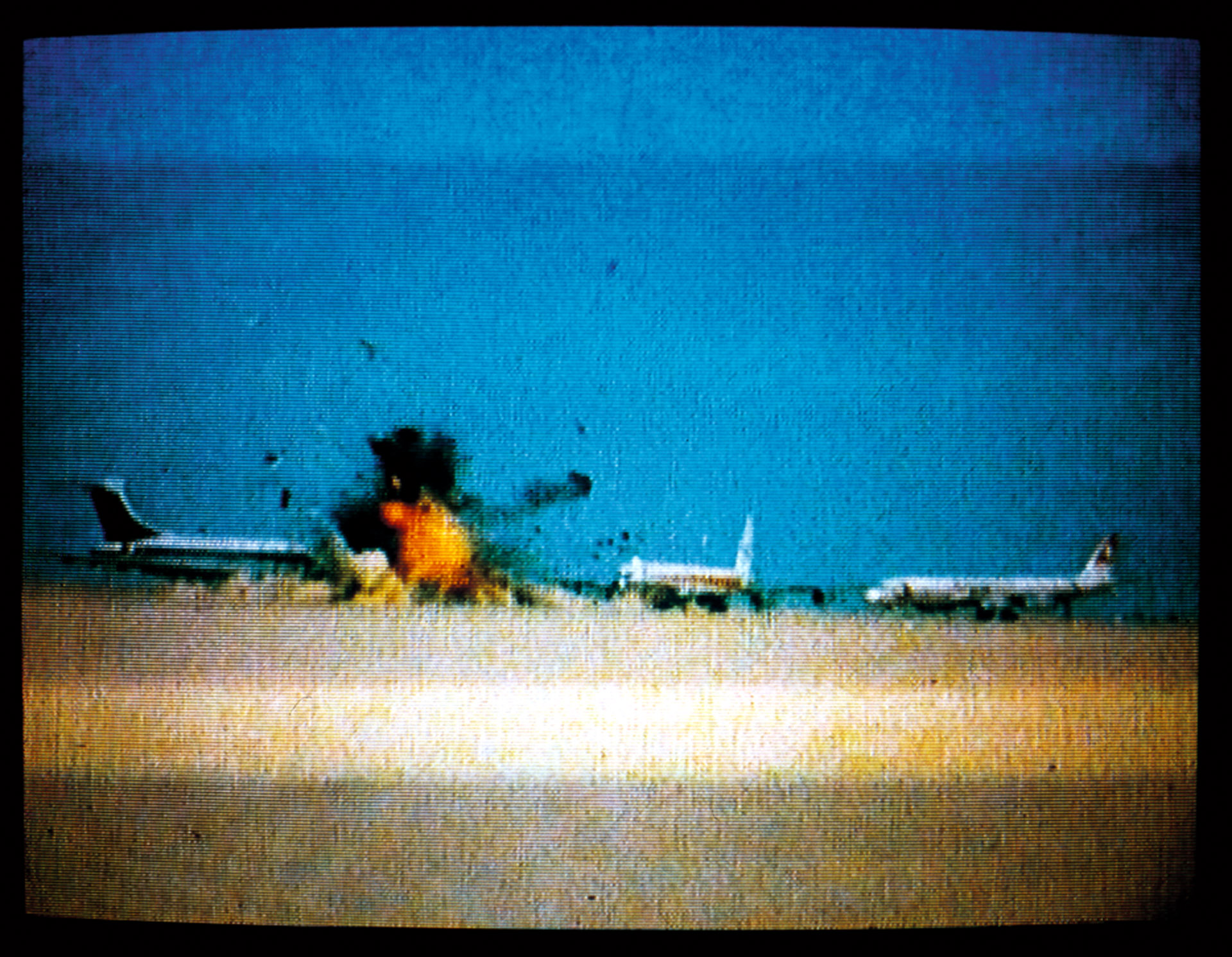
Johan Grimonprez (1962, Roeselaere, Belgium) is a renowned filmmaker and artist. His critically acclaimed work dances on the borders of practice and theory, art and cinema, documentary and fiction, demanding a double take on the part of the viewer. Informed by an archeology of present-day media, his work seeks out the tension between the intimate and the bigger picture of globalization. It questions our contemporary sublime, one framed by a fear industry that has infected political and social dialogue. By suggesting new narratives through which to tell a story, his work emphasizes a multiplicity of histories and realties.
Using documentary material, found footage, historical items from archives, his own home videos, news pictures, advertising, video clips and excerpts from Hollywood films, Grimonprez tries in his own way to give some meaning to the havoc wreaked by History. His films “speak to the need to see history at a distance, but at the same time to speak from inside it”. Other themes include the relationship between the individual and the mainstream image, the notion of zapping as “an extreme form of poetry”, and the questioning of our consensus reality, which Grimonprez defines as: “a reality that is entangled with the stories we tell ourselves in the worldview we agree on sharing.”
Grimonprez achieved international acclaim with his film essay, ‘Dial H-I-S-T-O-R-Y’ that premiered in 1997 at Centre Pompidou and Documenta 10 in Kassel. The film tells the story of airplane hijackings since the 1970s and how these changed the course of news reporting. Other key works from Grimonprez’ oeuvre, include ‘Kobarweng Or where is Your Helicopter’ (1992), ‘Double Take’ (2009) and ‘Looking for Alfred’ (2005).
In 2016 the highly expected film SHADOW WORLD went into premiere at the Tribeca Film Festival. SHADOW WORLD reveals the shocking realities of the global arms trade – the only business that counts its profits in billions and its losses in human lives. The film won Best Documentary Feature Film at the Edinburgh International Film Festival, Edinburgh, Scotland and at the 61st International Film Festival of Valladolid, Spain.
Traveling the main festival circuit from the Berlinale to Sundance, his films have garnered several Best Director awards, the 2005 ZKM International Media Award, a Spirit Award and the 2009 Black Pearl Award at the Abu Dhabi Film Festival. They have also been acquired by NBC Universal, ARTE, and FILM 4. In 2011 Hatje Cantz Verlag published a reader on his work entitled “It’s a poor sort of memory that only works backwards” with contributions by Jodi Dean, Thomas Elsaesser, Hans Ulrich Obrist and Slavojiek.
Johan Grimonprez’s curatorial projects have been exhibited at museums worldwide, such as the Hammer Museum (LA); the Pinakothek der Moderne (Munich); the MoMA (NY); Pinakothek der Moderne in Munich; The Fruitmarket Gallery in Edinburgh and the Blaffer Museum in Houston; the Stedelijk Museum voor Actuele Kunst (S.M.A.K.), Gent. Other curatorial projects were hosted for Grimonprez at major exhibitions and museums worldwide such as the Whitney Museum in New York, San Francisco Museum of Modern Art and the Tate Modern in London.
His works are part of the permanent collections of major museums, including the Centre Georges Pompidou (Paris), the Kanazawa Art Museum (Japan) and Tate Modern (London); the National Gallery, Berlin; the Louisiana Museum of Modern Art; Denmark; Tate, UK and Stedelijk Museum, Amsterdam, The Netherlands.
Grimonprez divides his time between Belgium and New York and is a faculty member at the School of Visual Arts (New York).